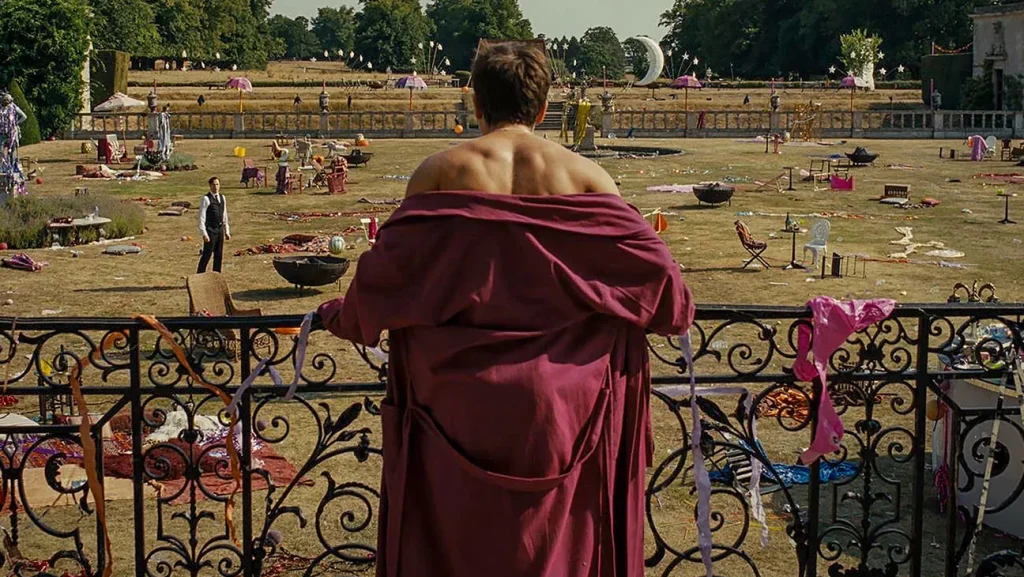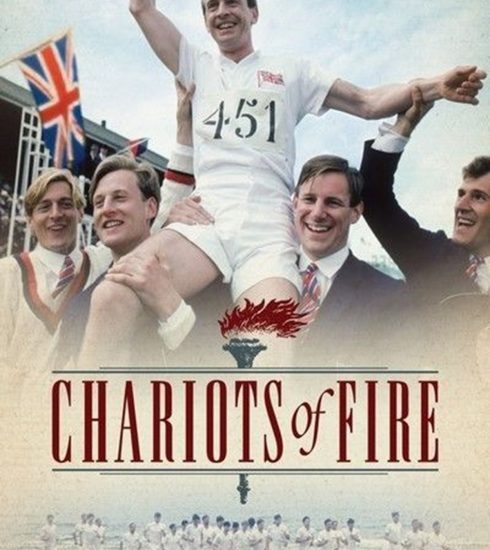Movie Review: Saltburn
For much of the movie Saltburn, writer-director Emerald Fennell’s addictive second feature, the viewer is caught in the same seductive web as its timid main character, Oliver Quick. At first, the middle-class — and therefore invisible — Oxford University student, played by the enthralling Barry Keoghan, becomes obsessed with his dashing classmate Felix Catton (Jacob Elordi, on an absolute roll right now), a handsome member of the upper crust.
And so do we. Sure, he’s a bit vapid, flaky and self-absorbed. Who cares? Let’s give Felix the benefit of the doubt because he is attractive and rich! When Felix’s bike tire blows, smitten Oliver graciously lends him his ride, and a quick (heh) friendship commences. At this early point, Fennell’s film is at its most mysterious. Standing on a precipice, the tale might be a classier kind of schoolyard romance, like the sort Netflix keeps pumping out. Or, considering she also directed 2020’s
#MeToo revenge drama Promising Young Woman, maybe there’s important social commentary on the way. We are totally unsure. From start to finish, the movie is a stiff-upper-lipped striptease toward what it’s actually about.
After a tragedy befalls Oliver, and Felix invites him to stay the summer at his family’s stately home called Saltburn, perhaps we have been dropped into an episode of Downton Abbey. The literary parallels keep coming. The name Oliver Quick is awfully close to that of a downtrodden Charles Dickens hero. Oliver, bashful and bumbling,
meets his wealthy new roommates — the eccentric Catton family — and they’re won over by his personal trauma and patronizingly gush about how “real” he is. The Cattons, however, couldn’t be less genuine.

The fabulously vapid mother, Elspeth ( a scene-stealing Rosamund Pike), is a society gossip who stares wide-eyed at poor Olly like he’s a lost puppy. Sir James Catton (Richard E. Grant), dad, spends his days hiding behind a newspaper and feeling nothing for his wife and children. Sister Venetia (Alison Oliver) repeatedly screws
up for attention. And cousin Farleigh (Archie Madekwe) is an American mooch who pathetically strives to stay in the Cattons’ good graces.
These aloof elites inhabit a grandly envisioned manse that is something between Downton Abbey and something a rapper like Rick Ross would call home. A climactic party is a drunken dream of unfathomable excess, danger and sexiness. While Saltburn is undoubtedly alluring and has the whiff of a thriller, the family’s aristocratic antics are hysterical. So much high-class satire has been on our screens lately, like TV’s Succession and films such as Parasite and Triangle of Sadness, yet Fennell’s jokes are the laugh-out-loud sort that comes as a surprise every time.
Equally as unpredictable are Oliver’s journey and Keoghan’s deftly shifting performance. The skill the Irish actor showed much more fleetingly as doofy Dominic in The Banshees of Inisherin thrives here. As he is ensnared by — and ensnares — the Cattons, we witness his ability to be a clown, a relatable everyman, and deeply disturbed all at once. Using similarly opposing forces, the family actors render their characters simultaneously lovable and loathsome.
There are three scenes that will prompt some eww’s and maybe a sprinkle of walkouts among those who expected a more Jane Austen-endorsed English estate movie. Think along the lines of Call Me by Your Name. However, what at first appears gratuitous will later enlighten Oliver’s insecurity, status and ambitions. Saltburn, itself, sheds light on what makes Fennell tick as a filmmaker.
Lest you think she is a writer and director mostly concerned with feminist stories or, more broadly, big issues, her latest film shows a different side — Fennell is a
supremely gifted entertainer. Saltburn has a brain, no doubt about it, but it also has a script that’s written with jet fuel.
Boluwatife Adesina is a media writer and the helmer of the Downtown Review page. He’s probably in a cinema near you.






